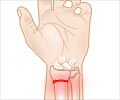Even the middle-aged athletes who are fit are not immune to cardiovascular disease risk, finds a new study.

Cardiovascular disease refers to conditions that involve narrowed or blocked blood vessels that can lead to a heart attack, chest pain (angina) or stroke.
"We all know that exercise is good for us it can help prevent a range of health problems and diseases, from cancer to depression," said Barbara Morrison, the study's lead author and a Ph.D. student in experimental medicine at UBC. "However, even if you are active, our findings suggest that you still can't outrun your risk factors."
For the study, researchers followed 798 "masters athletes" adults aged 35 and older who engage in moderate to vigorous physical activity at least three days a week. The participants included a range of athletes, from runners to cyclists, triathletes, rowers and hockey players.
Participants were asked a range of questions about their health, family history, and physical activity levels. They also had their blood pressure checked and waist circumference measured. Some participants also took part in an exercise stress test. Those with abnormal results underwent further testing, such as a CT coronary angiogram, to determine if they had cardiovascular disease.
Of the 798 athletes, 94 (11 percent) were found to have the significant cardiovascular disease. Ten participants were found to have severe coronary artery disease (a blockage in their artery of 70 percent or greater) despite not having any symptoms.
Advertisement
While the findings may seem alarming, Morrison emphasized that it doesn't mean masters athletes should stop exercising.
Advertisement
"The good news is that cardiovascular disease is treatable," she said. "Medication has been proven to reduce mortality risk, and even more so in people who are active."
Practicing moderation when it comes to exercise is also important, she added. "There is no evidence that pushing exercise to the limit will make you live longer or your heart stronger, but when taken to the extreme, it may have the potential to do harm," said Morrison. "You should never push yourself so hard that you can't exercise the next day."
Source-Eurekalert













